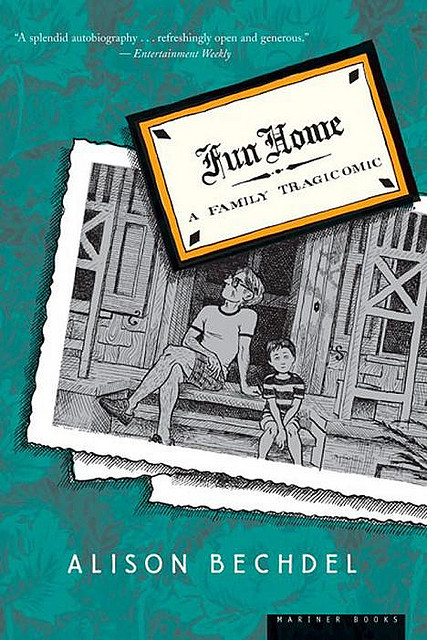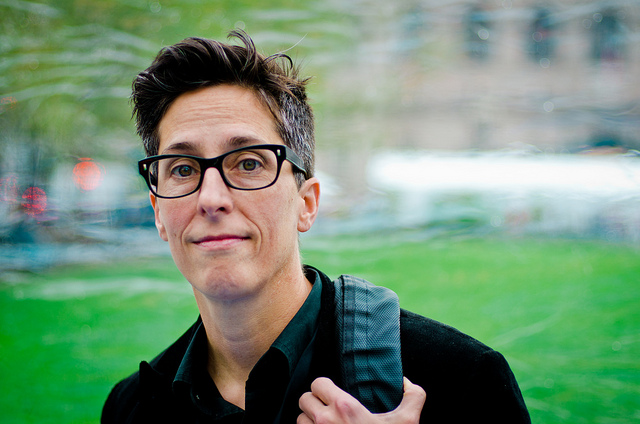“I do have a strange compulsion to confess — I suspect it’s some kind of lingering Catholic damage.”–Alison Bechdel
The first time I came across Alison Bechdel was just over a year ago. I was halfway through a Masters program in writing (a really lucrative degree; we’re all in it for the money) and my writing mentor had us read Are You My Mother?, Bechdel’s graphic memoir (“graphic” as in cartoon, not explicit) about her relationship with her mom.
It didn’t take long for me to see what all the fuss was about. After reading that book, I moved onto Fun Home–Bechdel’s first graphic memoir, this one about growing up around a funeral home and her relationship with the funeral home director, her father. In Fun Home, Bechdel recounts her formative years in Pennsylvania, her realization that she was a lesbian, the process of coming out to her parents, and her father’s confession that he was gay–followed, a few months after, by his death in a car accident, which Bechdel is convinced was suicide. A musical version of Fun Home has been running for a year and is headed to Broadway in April.
To say she is a singular person would belie the universality of her writing–the fact that I and so many other people who live different lives can find ourselves still in Bechdel’s work–but there is something so unique about her work that it is hard to come up with any other adjective. And I’m not the only one to see this; the good folks at the MacArthur Foundation saw fit to award Bechdel, among 21 total recipients, with their prestigious Genius Grant, announced today, which comes with a cash award of $625,000.
It turns out, though, that Are You My Mother? wasn’t the first I had heard of Bechdel–it just wasn’t until I started reading that book that I realized it. In her cartoon strip Dykes to Watch out For, she introduced the Bechdel Test, which evaluates films (and has been extended to other media, such as books and television) on the basis of the work having (1) at least two female characters in it, who (2) talk to each other (3) about something other than a man.
It sounds simple enough, but in reality, women are consistently underrepresented in films and, when they do show up, are more likely than men to be portrayed “in more explicit sexual content.” Bechdel put her finger on the pulse of the filmmaking industry with that 1985 cartoon strip–when women do make it onto the screen, their stories are often shallow or told only in relation to the men in the film.
Raised by Catholic parents, Bechdel doesn’t talk much about religion in her household. She does, however, draw heavily on other voices in her books–the psychologist Donald Winnicott is practically a main character in Are You My Mother?, and there is a great scene with a college professor in Fun Home where Bechdel’s genius is on full display. “I attended class religiously,” she writes of an English literature course. “Now, I’m sure the Catholics in class will recognize the narrative technique of the Ithaca chapter,” the professor says of Ulysses. A thought bubble rises from the narrator’s mind. “We will?”
Bechdel would continue her work of putting the humanity of women front and center regardless of whether she was recognized or paid bucketloads of cash to do so. And I, for one, am grateful we’ll get to keep learning from this particular Genius.






